ROANOKE, Va. (AP) � Juanita Prada marveled at the strength of a 3-year-old girl as she pulled apart the Play-Doh and pressed it back together.
“Ooh. You’re getting muscles!” Prada told Laken Musselwhite, a patient in Carilion Roanoke Memorial Hospital’s pediatric unit one day last spring. “One day, you’re going to get so big. You’ll say, look dad! I’m taller than you.”
Prada, 26, volunteers in Carilion Clinic’s pediatric unit a couple of days a week. She helps put smiles across the faces of young children like Laken. Soon she hopes to launch a career in child health care.
But not long ago, Prada was that sick girl in a hospital bed, eager to rid herself of the cords and pain.
Prada, a Roanoke County native, was diagnosed with leukemia at the age of 10. Her cancer returned a few years later. Through all the treatments, appointments, victories and setbacks, she emerged a survivor.
Major cancer organizations label September as Childhood Cancer Awareness Month. Prada recently noted that Aug. 28 marked 16 years since her first diagnosis.
Prada said she hopes her story sheds light on the challenges childhood cancer patients and survivors face as they pursue an education and a career.
“I want to be that inspiration,” she said.
(asterisk)(asterisk)(asterisk)
The path was not easy. Some of the hardest challenges came in the classroom, where she struggled to relearn equations, history and languages.
She eventually earned a bachelor’s degree from Virginia Tech. But the effects of her ailment did not end with the final rounds of treatment. She continues to live with some of them as she pursues a career.
Prada’s struggle following a childhood cancer diagnosis is not an anomaly. About 300 children are diagnosed with cancer each year in Virginia, said Dr. Glenn Edwards, the chief of pediatric hematology and oncology section at Carilion Clinic. The hospital treats between 20 to 30 new children in the region each year, Edwards said.
With school resuming for thousands of students across the Roanoke Valley, Prada’s story serves as a reminder that some of them are working to overcome the learning challenges that accompany cancer. They are fighting a daily battle and relying on the help of educators, health care professionals and counselors.
Prada was born in Bogota, Colombia. Her family moved to the Roanoke Valley when she was 7 years old.
Three years later, she started fifth grade at Penn Forest Elementary. During the first week of school, she felt an ache in her right leg. Her family thought it was just growing pains. But when it persisted, she visited the school nurse. Her temperature was well over 100 degrees.
Carilion diagnosed Prada with acute lymphoblastic leukemia, a cancer that affects the blood and bone marrow. She underwent a procedure to prepare her body for chemotherapy.
But “something went wrong,” Prada recalled, “and I ended up in a coma.” She woke up two days later.
Then, she had a stroke.
The next several months featured rounds of chemotherapy and testing at the hospital. The rehabilitation process was demanding.
“I was learning how to do everything from the beginning,” Prada said.
She had to relearn how to walk, lace her shoes and climb stairs. She couldn’t recall words she’d learned to speak and write in Spanish and English.
“I was a 10-year-old girl but my mind was of a 4- or 5-year-old,” she said.
As for schooling, Prada couldn’t attend Penn Forest Elementary in person, but Roanoke County accommodated her. A teacher visited Prada in the hospital. Eventually, Prada occasionally visited her classmates. On those days, the school encouraged students to wear hats to ease Prada’s concern over her hair loss.
“People just have compassion in the school system,” Prada said.
Prada headed to sixth grade after finishing treatment. She knew she’d changed, physically and mentally. Her hair grew back but she didn’t feel completely like herself.
(asterisk)(asterisk)(asterisk)
She was dealing with the late effects of cancer, an experience that’s not always plain to see.
“Late effects span across the board,” said Alma Morgan, an educational consultant for pediatric hematology and oncology at the Children’s Hospital of Richmond at VCU. “They cause challenges physically, cognitively, psychologically, emotionally and spiritually.”
Morgan said fatigue often afflicts childhood cancer patients and survivors.
“Sometimes, they cannot make it through the whole school day. They might need to go for a partial day, or have a rest area at school where they can lie down for 45 minutes.”
Morgan said it’s common for patients and survivors to go home exhausted after a school day and sleep for four hours before dinner.
Mentally, the late effects of childhood cancer can cause problems with short term memory and concentration. Retaining information can prove especially challenging.
The key to properly reintroducing a child who has or had cancer back to school is patience, Morgan said.
“We always encourage the child to get involved in activities, to find a place where they belong. It’s important to get them back into an active setting slowly, with an accommodation and support system,” she said.
Prada entered into an Individualized Education Program. Her support team determined she should take special education courses.
“The hardest part for me at that age was accepting that I was living with different conditions,” Prada said.
She needed tutoring outside of regular school hours. Prada said friends would ask, why are you going with that teacher after school? Or, why can’t you come to the football game?
“It just took me a longer time to get the hang of things,” Prada said. “I had to work my brain more than my friends did.”
Prada advanced to seventh, then eighth grade. She felt like she’d made great strides and was nearly back on track, ready to shake some of her dependency.
She remembers the exact moment it hit her.
“I was in math class. I heard someone calling my name, but I couldn’t really see anything, my eyes were so blurry,” said Prada, who was 14 at the time. “I told my dad, let’s go to the hospital.”
The doctor confirmed what Prada and her family feared � a relapse.
Prada said the anguish rushed over her. Here we go again. She felt even more reliant on her doctors, on her family, on medications. But her positive disposition overwhelmed the fear.
“I’ve always been an optimistic person. I knew if I got through it the first time, got through one of the most difficult times in my life, I knew I could get through it again,” she said.
Edwards was Prada’s physician. He calls her “an amazing young woman” and said the two are still in contact.
Prada underwent chemo and radiation as she started high school. She knew her brain was functioning differently now, and algebra and geometry proved especially difficult.
Prada survived cancer again, but the late effects persisted. She needed more accommodations and tutoring than her peers. During her senior year, she congratulated friends on their acceptance to college. But personally, she wondered what was next for her.
“I had to be realistic with myself � here are my needs, and here are my goals,” Prada said. “I survived childhood cancer twice. What am I going to do now? Can I even become a professional?”
(asterisk)(asterisk)(asterisk)
Because of her needs, Prada knew earning a four-year degree in education wasn’t an option for her, at least not yet. But she earned her high school diploma, and credits many people for helping her along the way.
Her parents, her brother and her individualized education case manager, Jessica Ficarro, are part of that list. She also raves about Gary Gibson, a transition counselor in the Virginia Department for Aging and Rehabilitation Services whom she calls a “guardian angel.”
Gibson, in turn, speaks highly of Prada.
“Juanita is one of those special folks,” Gibson said. “She had a very difficult time and struggled through high school. The indications say you would have a difficult time in college. But she took God-given talents, kindness and empathy for others � she took that and used it to the utmost effect.”
Gibson helped Prada find her footing after high school. She enrolled at Virginia Western Community College with a plan to take it slow.
“I remember telling her � maybe 30 times � if you get discouraged, remember that this is not a foot race. No one is going to care how long it took you to get through college. They’ll care that you graduated,” Gibson said. “She was the role model on how to attack college.”
Prada paired her love of working with children with Virginia Western Community College’s early childhood development program. She continued to receive some accommodations in class at Virginia Western, such as extra time to take exams. She took baby steps, eventually earning an associate degree.
Her sights were set on becoming a certified child life specialist.
“I considered trying to become a preschool or elementary teacher. But I wanted to give back to the health care system, specifically, to children in the hospital,” Prada said.
But first, she needed a bachelor’s degree.
“I put my mind to it. I said, Juanita, you can do this. You know you can,” she said.
Virginia Tech, Roanoke College and Liberty University all accepted Prada. She was ecstatic, but knew leaving home to further her education would be challenging for her family and herself.
“My parents were not too fond of me leaving. I knew my history of seizures, other medical conditions. Moving was risking something.”
But she kept in touch with her support team while renting an apartment with friends.
Some courses were harder than others. Biology required her to memorize a variety of terms and definitions. Sometimes, Prada said, her brain just couldn’t take it due to the late effects of her cancer.
She worked with her professors, staying after class when she needed help comprehending.
“I would ask them, can you draw me a picture? Could we use something to make this simpler, like fruits, illustrations? Anything to make this more clear,” Prada said.
With hard work and faith, Prada graduated with a bachelor’s degree in human development in fall 2017.
“It’s one of those things I can’t describe,” Prada said. “Thinking back to when I was 10, I never saw myself graduating from Virginia Tech. Then, what, I’m really here? This is so crazy.”
Life soon got even more exciting. Prada still wasn’t quite ready to become a certified child life specialist. She lacked a practicum and internship. Last fall, Prada was accepted to a practicum for Children’s National Health System in Washington, D.C. She spent four months shadowing specialists in the hospital, and labeled it another surreal experience.
Now Prada is back in Roanoke, volunteering in the same hospital where she spent many months of her life. She’s working beside some of the same nurses and specialists who cared for her 16 years ago.
An internship is Prada’s final step before she can become a certified child life specialist. She’s still applying and looking for the right fit.
Prada is a proud survivor, but recognizes that many children do not live through their cancer. In her free time, she helps advocate for more health care research. She’s especially focused on the mission this time of the year.
___
Information from: The Roanoke Times, http://www.roanoke.com
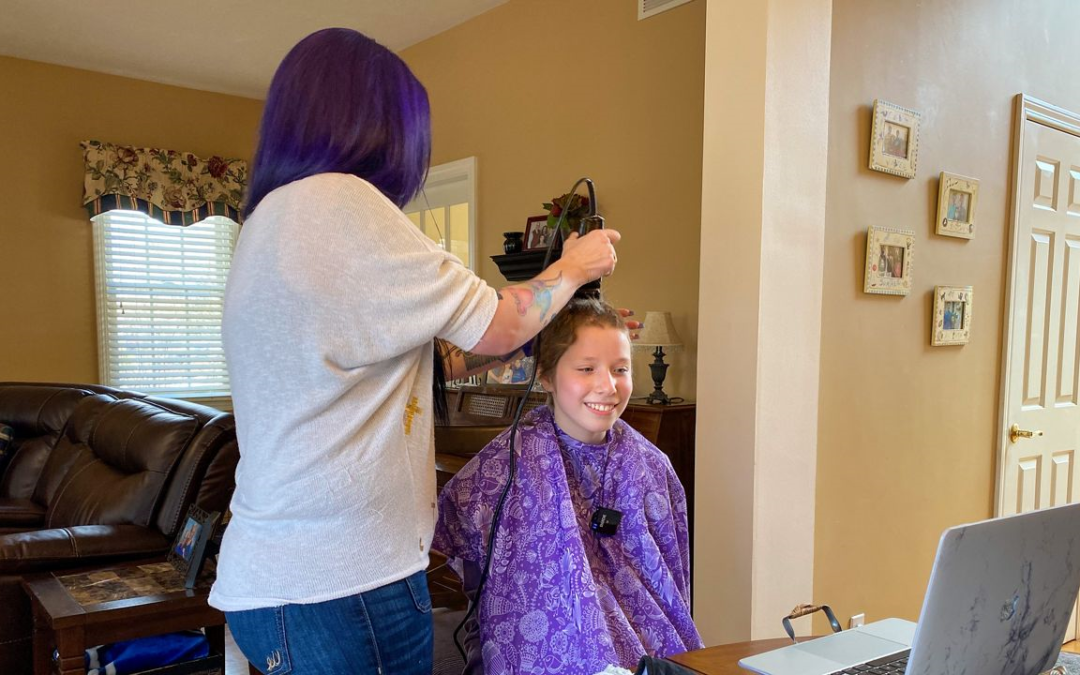


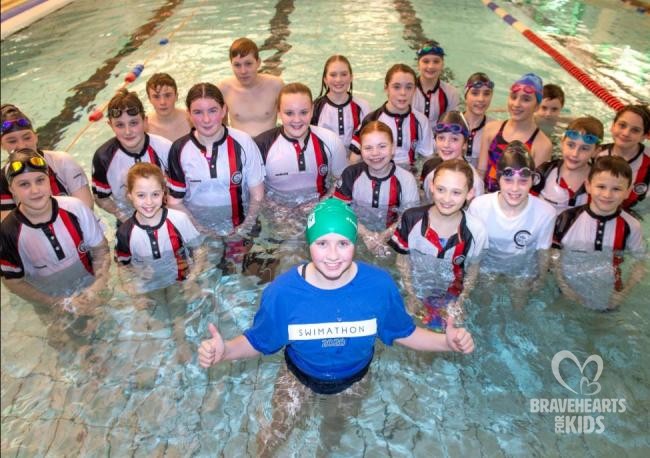
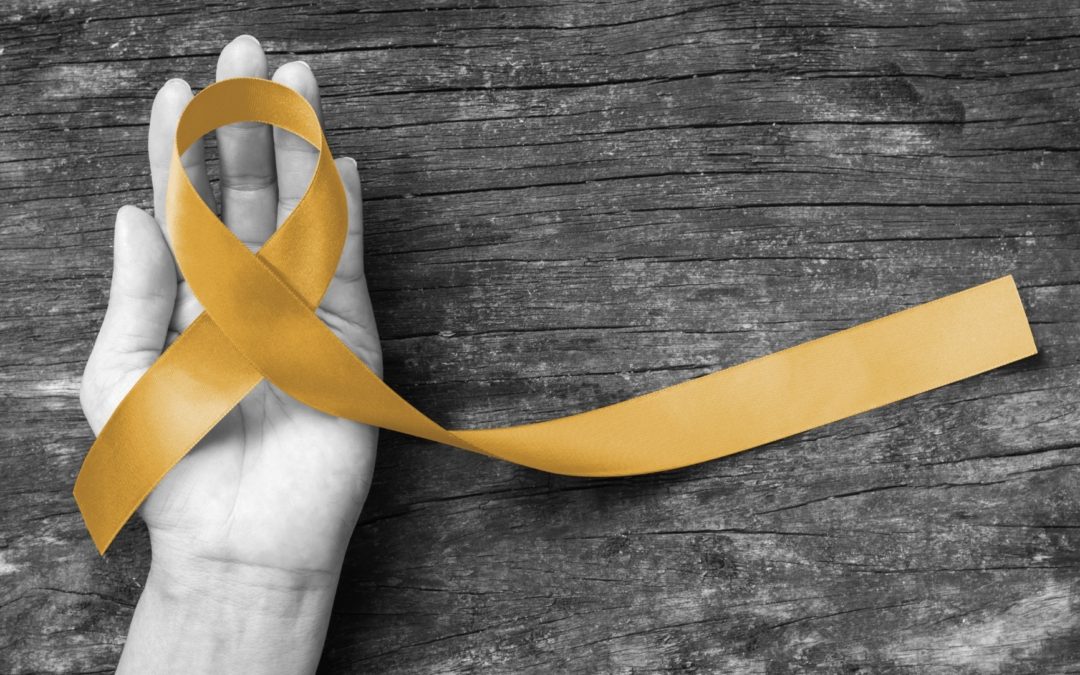
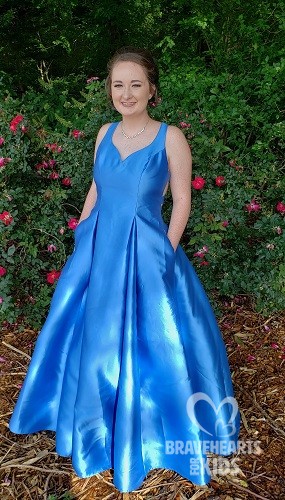
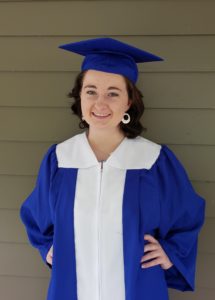 “Getting back to normal was always my goal,” Katie said. “But now that I’ve watched young children fight cancer and know some who didn’t make it, I don’t know if I’ll ever get all the way back to normal.”
Katie’s treatment ended when she was junior and she has had a great senior year. In the tradition of the theater, she kissed the stage with her fellow seniors and will graduate from Parkview High School in a few weeks. She plans on attending Valdosta State in the fall where she will study communications. As for a career, she is leaning toward writing and she is also interested in politics. In whatever she does, Katie hopes to shine a light on issues related to pediatric cancer.
“When I was in treatment, I didn’t plan for the future at all,” Katie explained. “We had to take everything one day at a time until it was over. I didn’t really think about college. I won’t know anyone at Valdosta State and that’s a little intimidating – but I will be just another freshman there and don’t have to be ‘that cancer girl’ anymore.”
Katie’s strength and determination have set her up for success in whatever field she chooses. Many childhood cancer survivors will be graduating both high school and college this month and we applaud their accomplishment. Our goal is for every child diagnosed with cancer to overcome their sickness and get back to normal… just like Katie.
Source:
“Getting back to normal was always my goal,” Katie said. “But now that I’ve watched young children fight cancer and know some who didn’t make it, I don’t know if I’ll ever get all the way back to normal.”
Katie’s treatment ended when she was junior and she has had a great senior year. In the tradition of the theater, she kissed the stage with her fellow seniors and will graduate from Parkview High School in a few weeks. She plans on attending Valdosta State in the fall where she will study communications. As for a career, she is leaning toward writing and she is also interested in politics. In whatever she does, Katie hopes to shine a light on issues related to pediatric cancer.
“When I was in treatment, I didn’t plan for the future at all,” Katie explained. “We had to take everything one day at a time until it was over. I didn’t really think about college. I won’t know anyone at Valdosta State and that’s a little intimidating – but I will be just another freshman there and don’t have to be ‘that cancer girl’ anymore.”
Katie’s strength and determination have set her up for success in whatever field she chooses. Many childhood cancer survivors will be graduating both high school and college this month and we applaud their accomplishment. Our goal is for every child diagnosed with cancer to overcome their sickness and get back to normal… just like Katie.
Source: 
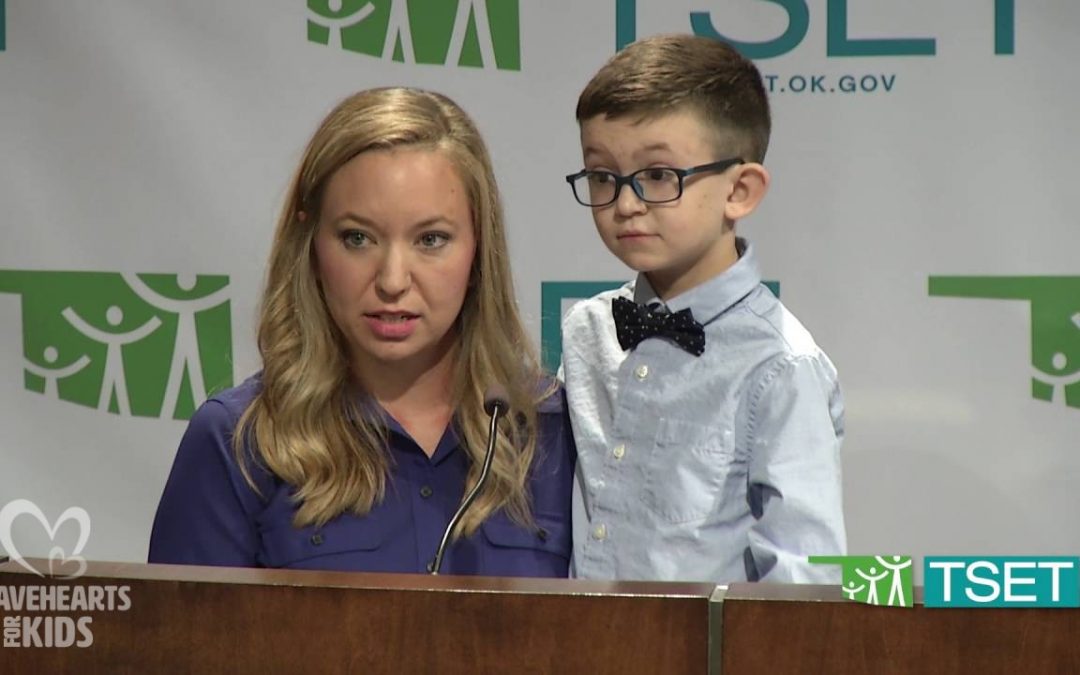
Most Commented